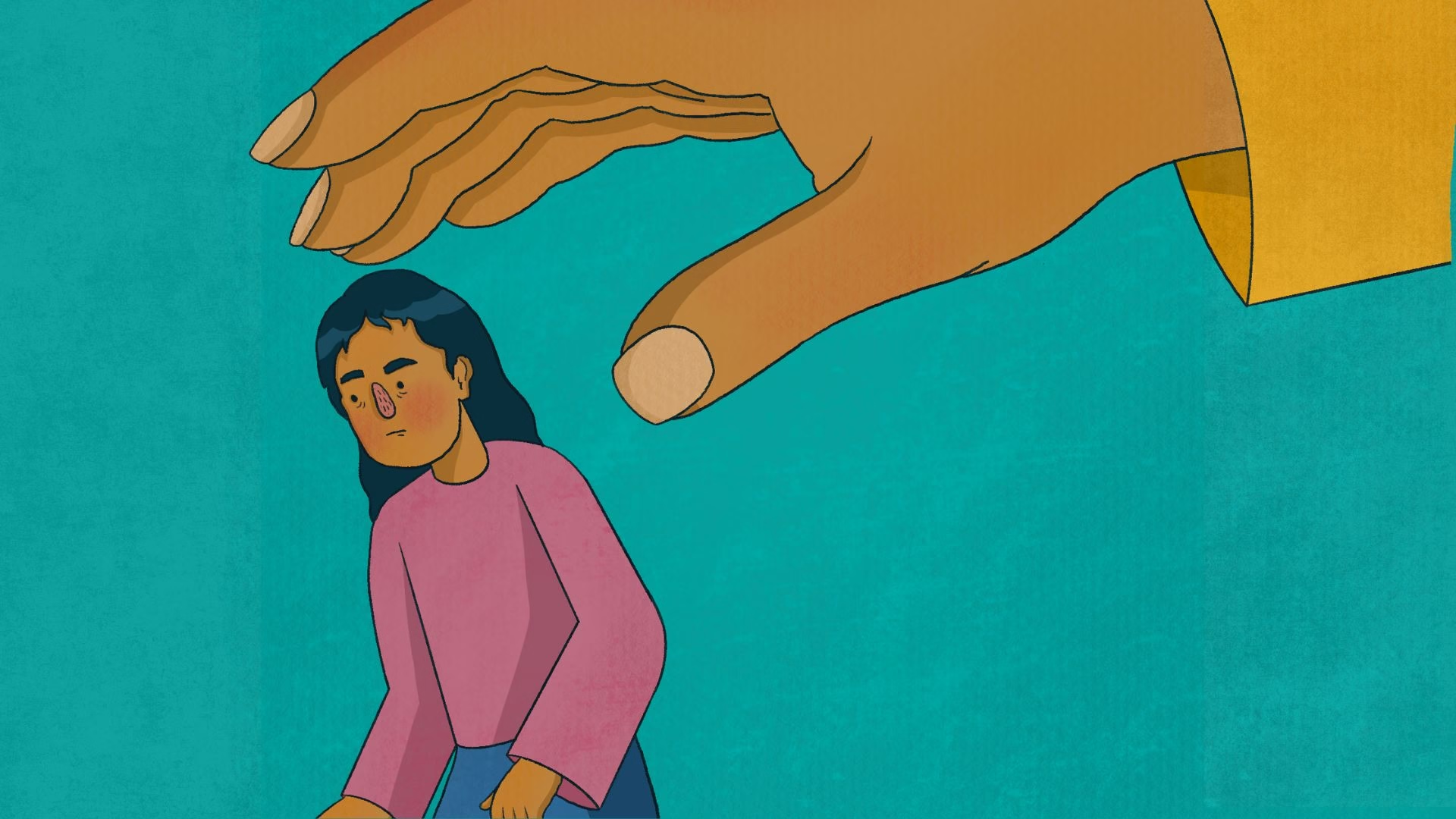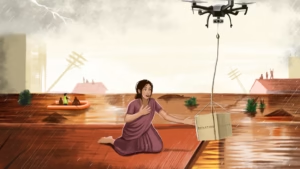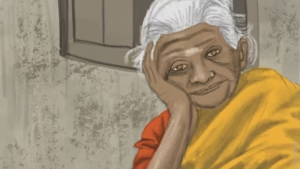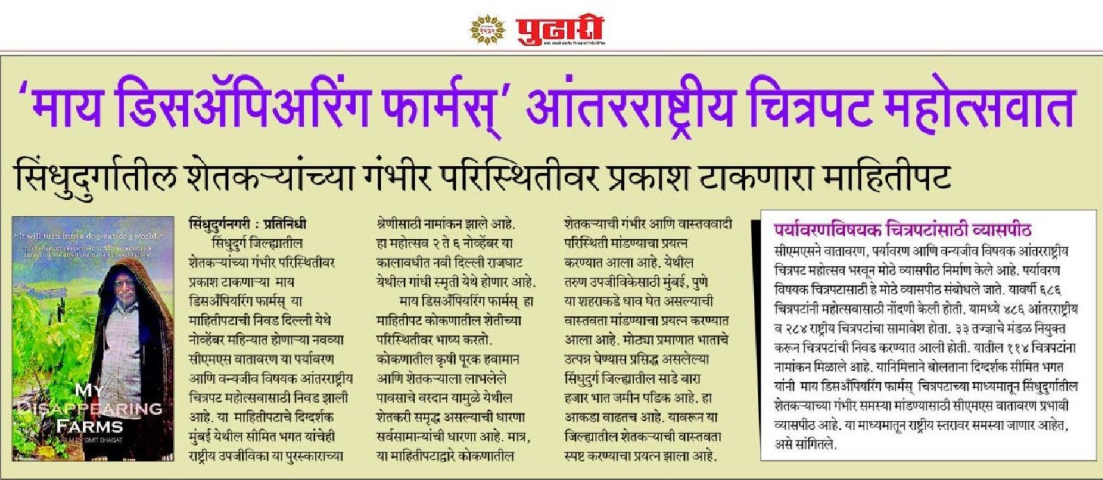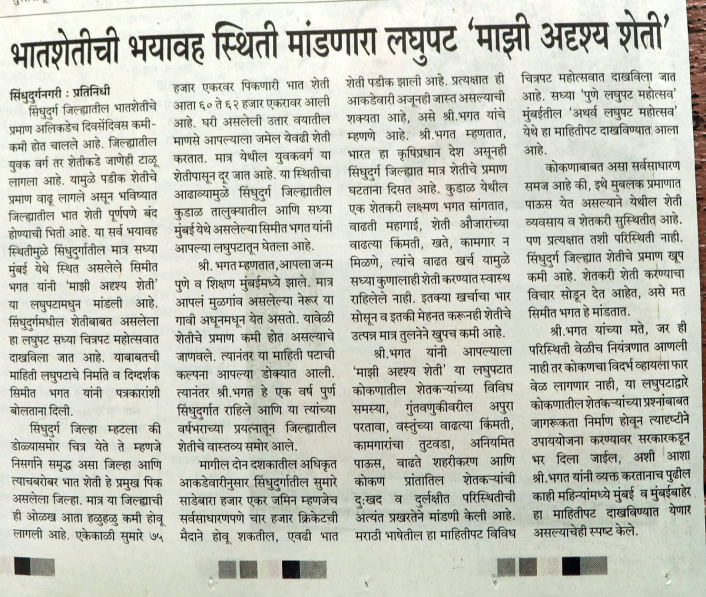The cries pierced through Satya Nagar, Wadala. A young woman, trapped on the second floor, was being beaten as her neighbours stood by in silence. People whispered that she had no parents, only sisters, and was entirely dependent on her husband and in-laws; a vulnerability they exploited. When confronted, her sisters admitted their helplessness. “Would it be the same if you were six brothers?” someone asked them. That question hung heavy: Is it a woman’s fault to be born a woman?
Domestic violence rarely stays behind closed doors. It ripples through families, generations, and entire neighbourhoods, teaching silence, shame, and fear. For too long, women have been conditioned to accept survival as love and endurance as duty. But moments like Satya Nagar remind us that violence is never private. It is a collective wound.
And yet, there is hope. Several organisations are standing alongside women, offering support, amplifying stories, and demanding accountability. By breaking the silence with real, human stories, they are helping women reclaim dignity, and entire communities begin to heal.
Here are five nonprofits that are leading that change.
1. Society for Nutrition, Education & Health Action (SNEHA)
In the crowded lanes of Mumbai’s slums, SNEHA decided to break the silence. They knew domestic violence was everywhere, yet it was nowhere spoken about. SNEHA’s Gender-Based Violence (GBV) programme works across individuals, communities, institutions, and public policy to prevent and respond to violence against women and children in Mumbai’s informal settlements. It combines crisis support, counselling, training of frontline institutions, and advocacy to create safer, more equitable environments.
Through street plays performed in narrow alleyways, they told survivors’ stories. Additionally, they painted bright wall murals urging women to seek help.
Additionally, they launched the “Little Sister” mobile app, letting women discreetly report abuse. One woman, Shabana (name changed), found her way out through SNEHA’s community network. Her story was later turned into an emotional audio story, spreading courage across many homes.
Through street plays performed in narrow alleyways, SNEHA told survivors’ stories.
Furthermore, SNEHA’s efforts helped address over 5,000 violence cases. They trained more than 2,100 hospital staff and 239 police officers. Moreover, over 300,000 women gained awareness of their rights. Their work shows that even in the most crowded, chaotic places, change can take root, story by story.
2. Plan International – Because I Am a Girl
Far beyond India’s slums, young girls worldwide faced a different kind of violence, denial of education and freedom. Plan International saw its struggles and answered with a bold movement. Launched in 2012, the Because I Am a Girl campaign used personal narratives to change global policies.
Moreover, they helped create the International Day of the Girl at the United Nations in 2011. Furthermore, they released annual State of the World’s Girls reports, giving voice to girls from every corner.
Because I Am a Girl campaign raised hundreds of millions of euros, change laws in numerous countries and, most importantly, supported millions of girls to get an education.
One viral blog, the fictional story of 12-year-old Thea, exposed the horrors of child marriage. It reached millions, even catching the attention of celebrities like Ashton Kutcher.
In just two years, the campaign raised €436 million, supported over 3 million girls, and influenced laws in 17 countries. Additionally, 2.3 million people raised their hands for girls’ education, making this a global movement of hope.
3. Breakthrough – Bell Bajao! and Mann ke Manjeeré
Breakthrough, a human rights organisation based in India and the United States of America, believed that even small acts could challenge violence. Their Bell Bajao! Campaign showed ordinary people — a bank clerk, a young boy, a software engineer, interrupting domestic violence with one simple act: ringing the doorbell.
These short films, like Ring Ring, starring Boman Irani (93,000 views) and Got Milk? (53,000 views), reached viewers in Hindi, English, Kannada, and Odia. They made intervention feel possible, even necessary.
The Bell Bajao! Campaign showed ordinary people interrupting domestic violence with one simple act.
Besides these films, Breakthrough had already struck a chord with Mann ke Manjeeré. This music video, based on a true story of a woman breaking free from an abusive marriage, was viewed over 375,000 times on YouTube. It reached 26 million households across South Asia, winning the Best Indipop Music Video award at the Screen Awards.
Furthermore, Bell Bajao won a Silver Lion at Cannes, proving that storytelling, simple and honest, could travel farther than laws or lectures.
4. NO MORE Foundation – #ListeningFromHome
When the world went into lockdown, homes became battlegrounds for many women. Besides the terror of a virus, survivors faced terror behind closed doors.
Recognising this, the NO MORE Foundation launched #ListeningFromHome. A haunting campaign, shot entirely under lockdown restrictions, urged neighbours to listen and act. Amazingly, the campaign quickly spread. It aired on NFL Network and Univision, achieving tens of millions of impressions. Meanwhile, 300 digital billboards carried the message across 50 major cities.
ListeningfromHome campaign, shot entirely under lockdown restrictions, urged neighbours to listen and act.
The results spoke loudly. Reports of domestic abuse by neighbours rose by over 10%. Besides, downloads of the Bright Sky App soared by 49%. Website traffic to NO MORE surged by more than 35% in two days.
Survivors flooded their social media pages with messages of gratitude. In a time of isolation, storytelling created new lifelines.
5. My Choices Foundation – #Respect2Protect
Meanwhile, My Choices Foundation knew that real change needed men as allies. Their campaign, #Respect2Protect, featured voices like MS Dhoni and Virat Kohli speaking for women’s safety.
The message was simple yet profound: respect saves lives. Besides celebrity videos, they encouraged ordinary men and boys to take pledges, change profile pictures, and share their commitment. Furthermore, their first full-scale digital campaign was a roaring success. Out of 266 entries from 8 countries, they won the Grand Jury Award for Women Empowerment at the 2016 Social Media for Empowerment Awards.
The movement proved something important. When men speak up, and when stories touch hearts, silence loses its power.
Conclusion
Domestic violence thrives in silence. But stories break that silence: stories of survival, courage, and everyday acts of intervention. Moreover, NGOs across the world are showing that change doesn’t need grand speeches or endless policies.
It begins with a story, whispered, sung, painted, filmed, and shared. Besides giving hope to survivors, these storytelling campaigns are teaching the world one vital truth: No one should have to hide behind sunglasses again.
Stories can spark change, and you can be part of it. Subscribe to our newsletter for more powerful updates on storytelling campaigns, NGO impact stories, and how you can help.

